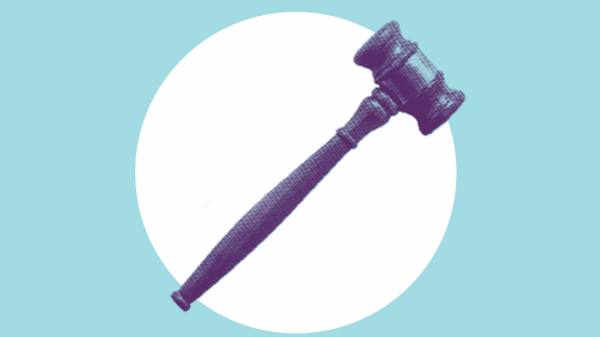In May, we teamed up with the Lewis and Clark Law School Criminal Justice Reform Clinic to file a lawsuit on behalf of Terri Carlisle, a 60-year-old woman who was denied medication and subjected to foul conditions and cruel treatment in the Douglas County jail. In her own words, Terri shares the story of her incarceration.
I am telling my story, embarrassing and scary as it is for me to tell, in hopes that it will bring changes to Douglas County. What happened to me in jail there was cruel and dangerous. And from what I saw, my experience was not an outlier, it was the norm.
After a rough patch of life, I increasingly turned to alcohol and things quickly got out of control. I was charged with driving under the influence three times and knew I needed to make some serious changes. I faced six months in the Douglas County Jail for my crimes, and I felt the sentence was appropriate. I knew jail would not be a vacation, but I never could have imagined the deplorable conditions that awaited me there.
I could write a small book about the horrors I witnessed. Many women in the jail had open sores, including one woman with a gaping hole in her thigh. As a former medical professional, I recognized this as MRSA, a serious bacterial infection that is highly contagious. MRSA is not a joke and those women should have been isolated from the rest of us. Instead, 10 women shared a single shower. I went in to be punished, not handed a death sentence. MRSA can kill.
Women with other serious medical conditions were denied their medications, or delayed to the point of serious risk. I saw people unable to receive stool softeners for days at a time. A simple aspirin had a 24-48 hour turnaround time.
To make matters worse, while several of the officers were kind and compassionate, most were not, and seemed to enjoy abusing their power and watching us suffer. I saw an older woman thrown to the ground for back talking a guard and I saw women beating each other.
As horrible as life in the general population was, the situation quickly became much, much worse for me when I was punished for “hoarding” my prescription medication for neuropathy, Gabapentin. I take this medication four times a day for severe nerve pain. One day, guards found one pill from a missed dose and accused me of hoarding. As a punishment, they put me in the Douglas County Jail’s version of “the hole” for a week, a 12 foot by 12 foot cell where up to 10 women were held at a time.
In the punishment cell, it was hot, filthy, and the smell was so bad it was difficult to breathe. For 24 hours a day, we languished in the small cell, even taking our meals there. Because it is also where newly incarcerated people are held, many are still high or sick from withdrawal. We only had one open toilet to share and women were vomiting and had diarrhea. One poor woman on her menstrual cycle had soiled clothing. We had to plead for toilet paper, feminine sanitary products, and clean clothing. Generally, we were left in our own mess for hours at a time. I went six days without a shower. I was denied phone calls or outgoing mail. Again, there is a difference in punishment which I feel I deserved ,and abuse, which I did not deserve.
Worst of all, they discontinued my medication immediately, which caused me a great deal of pain and suffering. Abruptly stopping this medication can have serious side effects, and I suffered many of them. To withhold medication as a form of punishment is not only inhumane, but illegal. No one should have that power. My doctor even wrote to the jail on my behalf, but they never gave me my prescription again for rest of my incarceration.
Adding insult to injury, when I was finally released, I went immediately to make a payment arrangement for the $6,000 in fines that were part of my sentence. I was informed that while I was incarcerated, my account was turned over to the State of Oregon for non-payment and they added an additional $3,179.20 in “collection” fees. It was outrageous. I wasn’t even given a chance to make an arrangement.
My friends encouraged me to call the ACLU of Oregon, to help make sure that no one else faces the cruel treatment I and other women faced in Douglas County Jail. Many people are afraid to come forward about the conditions there, for fear of retribution in our small county – and I would be lying if I said I wasn’t worried about that myself. But I know that what is happening in the jail is wrong. And I hope that when the people of Douglas County hear about my story, they will join me in demanding changes to the jail operations.

